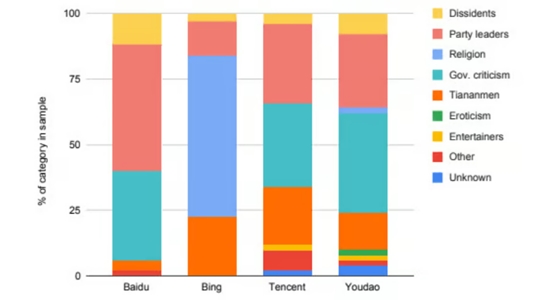
Researchers have found that four translation services provided by Chinese companies and one provided by an American company (Microsoft) automatically impose some 10,000 distinct censorship rules “that partially or completely omit content from users’ translations” (Western Standard, August 3, 2024).
“All but one service—Alibaba—performed censorship silently and therefore possibly without the user’s knowledge. Our work reveals the unfortunate reality that even if users in China have uncensored access to news or communications platforms, what they read or write may still be subject to automated censorship if they must translate between languages,” according to a new Citizen Lab study, “Lost in Translation: Characterizing Automated Censorship in Online Translation Services.”
What gets censored?
● Religious expression inconsistent with the theology of the Chinese Communist Party.
● Political expression inconsistent with CCP theology.
● Names and phrases that the CCP dislikes because of the history and ideas that they tend to be associated with: “Tank man,” “June 4 incident,” “Liu Xiaobo” (a coauthor of the Charter 8 human rights manifesto), “Dalai Lama,” and various Chinese Communist Party leaders associated with controversies.
The authors suggest that if you want to be read by Chinese readers and you’re saying the kind of thing that makes CCP censors pounce, you had better not rely on automatic translation services.
“Our work underscores a greater need for Internet freedom and human rights researchers to translate their work into the languages of those who would benefit from it using human translators or other trustworthy methods. We cannot assume that a reader has access to an online translator that is not compromised and that will faithfully convey what we write.”
It is already well-known that China limits what IP addresses users can visit, what searches they can conduct, and what they can say online. China also requires made-in-China chatbots to obey censorship rules. So this latest confirmation of the extent of the part-state’s censorship does not come as a shock. Nor does Microsoft’s complicity.





